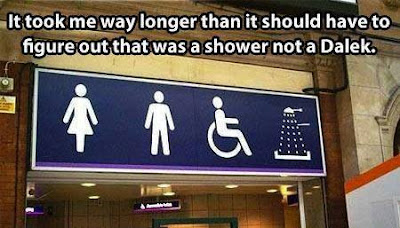 |
| Source |
I know what you're thinking: New Year's resolutions are so outmoded. People don't keep them, statistically speaking, so why even bother? The truth is, I keep more of mine than I break - especially the ones I've made in the last couple of years. Further, I find that letting others know that I'm trying to make changes helps me stick to the changes. I know my friends and colleagues wouldn't judge me if I backslide, but it feels like a promise I've made when I tell others... and that helps me stay the course. So this post is me letting someone know, and encouraging you to do the same.
In 2014, I resolve to:
Make more local librarian connections/friends. As has been written many places (including on this blog), administration/management can be a lonely business. I have some wonderful colleagues among the staff at my current college and have even forged some friendships with members of our faculty, but that isn't quite the same thing as being friends with other librarians. Besides, I want some balance.
Read more professional literature. A lot of the professional development reading I've done over the past year has been in the form of audiobooks, which isn't the most productive method since my commute is only 10-15 minutes. I'm going to carve out an hour or two per week just for more reading.
Write more professional literature. My blogging time is sacrosanct, but I want to get my voice further out there, so I need to find more time for this. Besides, there are some open access publications that are edited by librarians who I really admire (Leslie Reynolds is part of the editorial team at Practical Academic Librarianship, and Barbara Fister is part of the group at The Journal of Creative Library Practice), and I want to support them.
Make new mistakes. Lots of them. Don't get me wrong: I'm planning to succeed lots, too. I like to take risks, but they are always calculated. However, if I'm willing to embrace my mistakes - and learn from them - successes won't be too far behind.
 |
| Source |
Finally, I resolve to spend more time concentrating on my professional strengths (as opposed to my weaknesses). I just finished reading Strengths Based Leadership: Great Leaders, Teams, and Why People Follow, and the results I got when I took the associated test, the Clifton StrengthsFinder, were startlingly accurate. I like the idea of working with what I'm already good at, and finding partners to balance me - instead of trying to be all things to all people.
In case you're interested... My top 5: Ideation, Input, Strategic, Learner, Communication. #strengths
— Jessica Olin (@olinj) December 26, 2013
How about you? Got any professional resolutions you'd care to share?

























